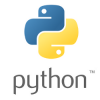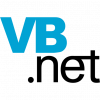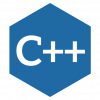Blogging System in PHP and MYSQL
The Blogging System is a comprehensive web-based application designed to efficiently manage Web Page, User, Blog, Blog Category and Comment. Its primary goal is to streamline administrative tasks and reduce manual efforts associated with Blogging System and management. With a user-friendly interface, the system provides the administrator exclusive access to oversee and monitor the entire Blogging System process. You can find complete projects with source code for Blogging System in PHP . Step by step full detail regarding this project from PHP Projects and download free source code for Blogging System in PHP.
The Blogging System has developed using PHP and MySQL, and it aims to eliminate manual errors and establish a computerized Blogging System framework. This system empowers users to easily handle Technology Blog, Create Blog, Blog Type, Web Page, User, and Blog operations in a centralized and organized manner.
With its user-friendly interface and robust functionalities, the Blogging System is an ideal solution to efficiently manage User, Blog, and team members, ensuring a seamless Blogging System experience for administrators and users alike.
Blogging System is an innovative and practical PHP and MySQL projects for your final year. Our PHP Projects on Blogging System are carefully designed to provide you with hands-on experience in developing a robust Blogging System. With user-friendly interfaces and advanced functionalities, these projects are perfect for students and developers seeking to enhance their PHP programming skills. Stand out in your academic endeavors with a Final Year Project on Blogging System.
Take your final year project to the next level with our expert guidance. Access the source code database of our Blogging System to accelerate your project development. By downloading the source code and database of Blogging System, you gain valuable insights into the implementation of essential features of Web Page, Blog, Blog Category, and Comment. Are you looking for free and high-quality Blogging System Projects? We offer a range of free Blogging System Projects that come with detailed documentation and source code.
Explore our collection and download the projects that best fit your requirements. Our Blogging System projects come with comprehensive documentation and a synopsis, providing you with step-by-step guidance on how the system works, its functionalities, and its benefits. The Blogging System documentation and synopsis helps you understand the project's architecture, modules, and how to extend its capabilities to meet specific project needs.
Features of Blogging System:
- Efficient search capabilities for Web Page, Blog, Blog Category, and Comment
- Comprehensive information management for User, Blog Type, and Blog Category
- Effective monitoring of Web Page, User, and associated details
- Streamlined operations for Blog Category, Web Page, and Blog Type
- Advanced search options for Create Blog, Technology Blog, User, and Blog records
- Seamless integration of Technology Blog, Web Page, and Create Blog modules
- Easy-to-use CRUD operations for Blog Type, Web Page, and Blog management
- Robust reporting functionalities for Web Page, User, and Blog Type
- Export options for generating PDF, Excel, and CSV reports
Modules of Blogging System:
- Technology Blog Module: This module facilitates the creation, reading, updating, and deletion of Technology Blog records.
- Create Blog Module: It manages all operations related to Create Blog, ensuring efficient Create Blog management.
- Blog Type Module: The Blog Type Module allows users to manage various Blog Type details effortlessly.
- Web Page Module: This module is dedicated to managing Web Pages and their associated operations.
- User Module: The User Module streamlines User management tasks with ease.
- Blog Module: It efficiently handles all Blog-related operations and transactions.
Installation Steps for Blogging System:
- Download the Blogging System zip file and extract its contents.
- Copy the Blogging System folder to the C:/xamp/htdocs directory.
- Using phpMyAdmin, create a new database named "Blogging System".
- Import the provided Blogging System.sql database file into the newly created database.
- Launch the system in your web browser by accessing "http://localhost/Blogging System/".



























